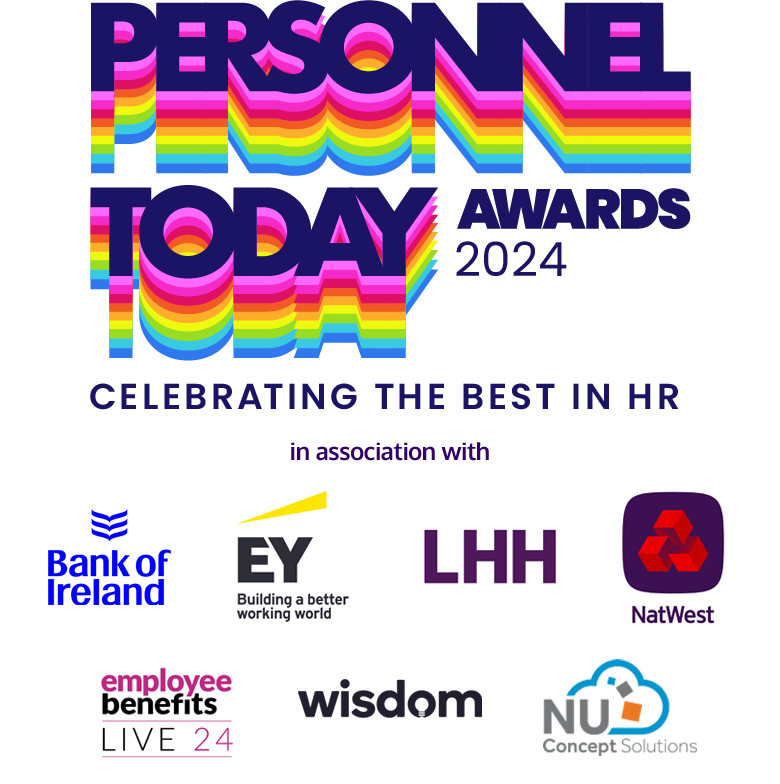Engineering firm IMI was handed the prize for Change Management at the Personnel Today Awards at the glittering annual West End ceremony. According to the judges, IMI’s Growth Hub brilliantly tackled core business issues, focused solutions and organisational learning across its complex engineering structure. We look at their winning entry and those of our other finalists.
WINNER
IMI
Engineering company IMI needed to drive growth in new product development. It found that despite significant investment in new products, market demand often fell short of expectations post-launch. IMI needed to not only develop products that addressed customers’ critical problems but also to foster a culture where every employee embraced a growth mindset.
To address this, IMI launched the Growth Hub, aiming to explore and understand customer problems, leverage its engineering expertise, and create sustainable, profitable growth. The Growth Hub challenged the assumption that established companies can’t be as innovative as startups by successfully incubating startup-like projects within IMI. The process included searching for industry problems, testing ideas with customers, building solutions, and scaling them up to boost sales.
A significant cultural shift was required for this initiative to succeed. IMI’s leadership, led by CEO Roy Twite, played a crucial role in driving this change. The company appointed leaders as sponsors and provided training, while involving top talent in Growth Hub programs. Growth Hub Champions were appointed to onboard new members and address any resistance to change.
The Growth Hub has been a commercial success, generating millions in new business and fostering a growth mindset across the company. Employees have embraced the new ways of thinking and working, applying Growth Hub principles to their daily roles. This initiative has firmly positioned IMI on track to achieve its strategic growth objectives.
RUNNERS-UP
AstraZeneca
Production of AstraZeneca’s leading cancer medicine is expected to increase from 5 million devices before 2020 to 9 million devices after 2025. To manage this growth and ensure a continuous supply to patients, the company launched a transformational change programme.
Personnel Today Awards
All our 2024 winners revealed
View the 2024 photo gallery
The Personnel Today Awards 2025 open for entries around Easter
Sign up to keep updated
The programme, spanning from 2022 to 2026, focuses on having the right people in the right place at the right time. It involves moving and transforming production facilities, building two new plants while phasing out two others, and addressing the need for new talent through large-scale recruitment, onboarding, and training.
A key challenge is managing the transition of experienced talent to meet future production needs, requiring a careful review of skills and gradual movement of employees across four plants over four years. The change management strategy involves role matching, attracting new talent through assessment centres, and training through AstraZeneca’s Learning Academy. Recognising the potential disruption of interviews on production, the company introduced a role matching app to pair employees with suitable jobs. The app allows employees to share their aspirations and skills, which managers then reviewed.
AstraZeneca has also overhauled its recruitment process, using standardised assessment centres and focusing on candidates’ desire to work for the company. This has led to a more diverse workforce. Training shifts have included the introduction of augmented reality (AR) and virtual reality (VR), reducing training duration and enhancing skill development. This has significantly improved the speed to competence and consistency in onboarding new employees.
Bank of Ireland
Bank of Ireland undertook a significant cultural shift in 2022 when it redesigned its performance management system. The new system, called “Thrive”, focuses on personal growth, development, and wellbeing, aligning with the company’s purpose while helping employees to be productive. Previously, the performance management process had been rigid and traditional, causing frustration and stress among employees, with almost two-thirds feeling it did not support their development.
The bank created Thrive with the input of more than 1,000 employees, identifying key problems such as infrequent feedback and a demotivating rating system. The company then researched best practices from other industries to inform the redesign. The new approach is more simple and consistent, with quarterly check-ins and a more motivating ratings scale. Employees can then use the Careers Lab to support their professional growth.
The introduction of Thrive required careful change management, preparing employees through a strategy of informing, educating, and equipping them with the necessary skills. The company overcame resistance by involving employees in the design process and establishing a network of senior leaders to champion the new system. Thrive’s success is evident in improved engagement and development metrics, positioning Bank of Ireland as a supportive and effective workplace.
Dishoom
After 12 years of successfully operating its Bombay-influenced restaurant chain, Dishoom wanted to open a new “concept restaurant” in Brighton called The Permit Room.
The Permit Room was designed as an extension of its “Seva” core belief – that we are all happiest when sharing ourselves whole-heartedly and contributing to the best of our abilities. Dishoom wanted to create a community space where guests could relax and reconnect while enjoying a menu filled with new dishes, locally sourced drinks, and exceptional cocktails.
Dishoom’s national operations are complex, involving numerous team members and a large number of guest interactions daily. The Permit Room aimed to establish a smaller café brand with fewer staff and a more intimate dining experience. However, there was a significant risk that the new venture could be seen as a diluted version of Dishoom, which could damage the core brand and waste resources during a challenging economic time.
To overcome this, Dishoom completely rethought its approach. The team drew inspiration from Bombay’s history and created a unique space that celebrated its heritage while offering a relaxed and welcoming atmosphere. Along with targeted training and a strong connection to the local community, this led to a successful launch that has been highly praised by guests and has set the stage for further expansion in other cities.
SUEZ recycling and recovery UK
In late 2022, SUEZ recycling and recovery UK won the waste and environment services contract from Milton Keynes City Council (MKCC), which also included grounds and play area maintenance. This contract required SUEZ to work with another company, Glendale, to provide the necessary services. The transition period lasted eight months, during which 311 employees were transferred from the previous contractor to SUEZ and Glendale through the TUPE process.
Recognising that such a significant change could be unsettling for employees, SUEZ aimed to address potential disengagement by ensuring that the employees understood SUEZ’s commitments, felt reassured about the transfer, and saw the company’s dedication from the outset. It was important that they received clear communication, had chances to provide feedback, and understood SUEZ’s strategic goals and critical success factors.
To manage the change, SUEZ formed a project team with an HR workstream that held weekly meetings to track progress. They took several steps to engage the transferring employees: sending a welcome letter with a video message, setting up a dedicated email for HR queries, and hosting a welcome meeting at MK Dons Football Club with various information stalls. They also provided one-on-one HR sessions, engaged with unions, and consulted on changes through multiple meetings.
The transition was successful, with high stakeholder satisfaction, efficient service, and minimal disruption. A new digital payroll system was adopted well, with 92% of employees using it confidently within three months. Employee engagement and retention rates were strong, and the approach used has now become a blueprint for future contract mobilisations.

Sign up to our weekly round-up of HR news and guidance
Receive the Personnel Today Direct e-newsletter every Wednesday

